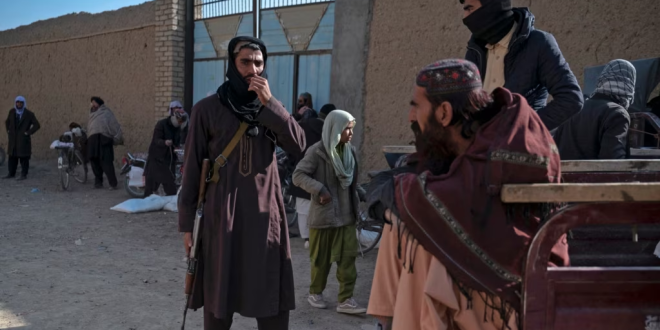AT News
KABUL – In a bid to address the ongoing Afghan crisis, the United Nations is pushing for the inclusion of Taliban representatives at a pivotal two-day international conference set to commence in Qatar next week.
Secretary-General Antonio Guterres will spearhead the conference starting February 18, welcoming special envoys from member states and regional organizations to delve into the evolving landscape of Afghanistan.
Stephane Dujarric, the Secretary-General’s spokesperson, emphasized the primary aim of the gathering: to deliberate on the international community’s engagement strategy with the Taliban in light of their recent resurgence.
“An essential facet of the event is facilitating dialogue between special envoys and Afghan stakeholders, encompassing representatives of the de facto authorities and Afghan civil society, notably women,” stated Dujarric to VOA.
Scheduled in Doha, the capital of Qatar, this gathering marks the second such U.N.-orchestrated assembly within a year, contrasting the previous omission of Taliban participation in the May 2023 session.
Central to the agenda is the potential appointment of a U.N. envoy tasked with coordinating heightened international interaction with Taliban leadership in Kabul—a move endorsed by the United States and its European allies, albeit met with reservations from China and Russia.
Amidst this backdrop, the Taliban confirmed receipt of an invitation to the forthcoming conference, expressing a tentative openness to engage meaningfully. However, resistance persists from Afghan authorities regarding the proposed U.N. envoy appointment, as underscored by Taliban deputy chief minister Abdul Kabir.
The United States, fervently backing the resolution’s call for a U.N. special envoy, reaffirms its commitment to advancing objectives outlined in the resolution.
Yet, Washington maintains a firm stance against “normalizing” or recognizing the Taliban regime until they fulfill their commitments, reiterating concerns over human rights violations and terrorism.
Notably, the United Nations has refrained from granting the Taliban representation on its platform, with no formal recognition extended to the new Kabul government by any nation.
Since reclaiming power in August 2021, the Taliban’s strict interpretation of Islamic law has sparked global condemnation, particularly regarding curtailed women’s rights and allegations of human rights abuses.
In response, the Taliban defend their governance as culturally and religiously aligned, dismissing international criticisms as interference.
As calls mount for inclusive governance and adherence to international norms, the Doha summit emerges as a critical juncture in shaping Afghanistan’s trajectory amidst a complex geopolitical landscape.
 Afghanistan Times
Afghanistan Times




